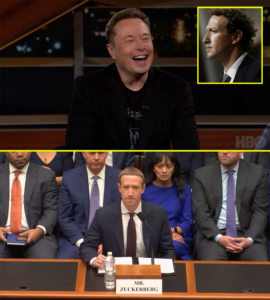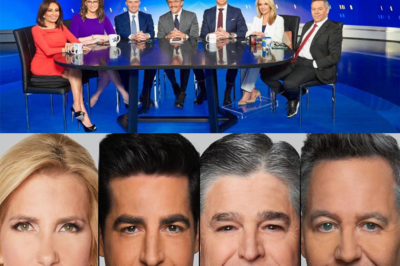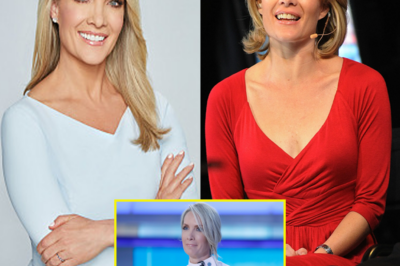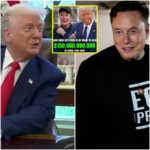Elon Musk Shocking Response: Facebook Throws in the Towel on Fact-Checking in the U.S., Follows X Operator’s “Freedom First” Playbook

In a move that has left many questioning the future of social media and online discourse, Facebook has made a bold decision to stop its U.S. fact-checking efforts, aligning itself with a controversial stance that has made waves in the tech world. The decision comes on the heels of Elon Musk’s ongoing campaign for “freedom first,” a mantra he has heavily pushed since taking over X (formerly Twitter). And now, it seems that Facebook—one of the world’s largest social media platforms—is following in Musk’s footsteps, with the tech giant throwing in the towel on fact-checking in the U.S.
But what does this mean for the future of online information, and why would Facebook make such a drastic move?
The End of an Era for Facebook’s Fact-Checking
For years, Facebook has been at the center of debates about the role of social media in spreading misinformation. The platform has faced constant scrutiny for hosting misleading content, ranging from false political claims to health-related misinformation. To combat this, Facebook implemented an elaborate system of fact-checking in collaboration with independent organizations, aiming to minimize the spread of fake news and ensure that users were receiving accurate information.
However, in a shocking turn of events, Facebook has announced that it will be pulling the plug on its fact-checking operations in the U.S. The reason? A growing belief in the value of “free speech” over the need for platform moderation. This shift comes in the wake of Musk’s vocal stance on allowing more freedom of expression online, which has been embraced by his X platform and increasingly by other social media giants. Musk has argued that “freedom first” means giving users the power to decide what is true or false without the interference of fact-checkers, a view that has become controversial yet undeniably influential.
Musk’s Influence on Facebook’s Decision
Elon Musk has long been a critic of what he sees as the “censorship” of free speech on social media platforms. His acquisition of X (formerly Twitter) in 2022 sent shockwaves through the tech world, as he drastically reduced moderation and welcomed a wider range of voices and opinions. While his actions have been met with mixed reactions, there’s no denying the impact he has had on shaping the way social media companies handle content.
Musk’s push for freedom of speech has been echoed by many, but the question arises: can platforms truly balance freedom of expression with responsibility? Facebook’s decision to follow Musk’s lead by scrapping its fact-checking operations raises a troubling question—what does this mean for the accuracy of information that millions of people rely on daily?
A Dangerous Precedent?
Critics of Musk’s approach to social media have long warned that removing content moderation can lead to an explosion of misinformation and harmful rhetoric online. And now, with Facebook following Musk’s lead, concerns are mounting. Without fact-checking, will users be exposed to an even greater volume of misleading content? And how will this affect the ongoing battle to protect the public from harmful fake news and dangerous conspiracy theories?
While Musk and Facebook both argue that they are empowering users by removing gatekeepers, the reality is more complicated. The lack of reliable, independent fact-checking opens the door for bad actors to manipulate public opinion, distort facts, and spread falsehoods with little to no repercussions. This is a slippery slope, and it could have far-reaching consequences for the health of public discourse in the U.S. and beyond.
What’s Next for Social Media?
The future of social media is now in the hands of tech moguls who are prioritizing free speech over fact-checking. Facebook’s decision signals a shift toward less regulation and more user autonomy, but it also raises questions about the responsibilities these platforms have to their users. As Musk’s influence continues to grow, other social media giants may follow suit, leaving us to wonder: where will this trend end? Will we see a new era of unfiltered, unverified information online? Or will the consequences of misinformation force a change in course?
What Do You Think?
This dramatic shift in Facebook’s approach to content moderation has everyone talking. Are we heading toward a new era of online freedom, or will the lack of fact-checking leave us vulnerable to manipulation and fake news? Share your thoughts, and let’s discuss how these changes will reshape the way we interact with information online. The power is now in our hands—do we want it?
News
“Fox News’ The Five Makes History by Beating CNN and MSNBC—First Non-Primetime Show to Dominate Cable News Ratings!”
“Fox News’ The Five Makes History by Beating CNN and MSNBC—First Non-Primetime Show to Dominate Cable News Ratings!” In a…
“Why Is Dana Perino Missing from Fox News? Fans Are Fearing the Worst After Her Sudden Disappearance”
“Why Is Dana Perino Missing from Fox News? Fans Are Fearing the Worst After Her Sudden Disappearance” Fox News viewers…
“Ryan Seacrest Teases Engagement and Reveals a Mystery Woman—Fans Can’t Stop Speculating About His New Love!”
“Ryan Seacrest Teases Engagement and Reveals a Mystery Woman—Fans Can’t Stop Speculating About His New Love!” Ryan Seacrest, the ever-charismatic…
“Ryan Seacrest’s Secret Bad Habit That Ruined His Partnership with Kelly Ripa on Live—Is This Why They Went Separate Ways?”
“Ryan Seacrest’s Secret Bad Habit That Ruined His Partnership with Kelly Ripa on Live—Is This Why They Went Separate Ways?”…
SHOCKING TWIST! Sidwell Reveals Spencer Didn’t Die—He’s Alive, and What He’s Been Hiding Since His “Death” on General Hospital Will Leave You Speechless…
SHOCKING TWIST! Sidwell Reveals Spencer Didn’t Die—He’s Alive, and What He’s Been Hiding Since His “Death” on General Hospital Will…
It’s Official: CBS Drops $700 Million to Launch Megyn Kelly & Candace Owens as The View’s Ultimate Rivals—This Explosive Morning Show Duo Promises No Censorship, No Apologies, and No Holding Back!
It’s Official: CBS Drops $700 Million to Launch Megyn Kelly & Candace Owens as The View’s Ultimate Rivals—This Explosive Morning…
End of content
No more pages to load












